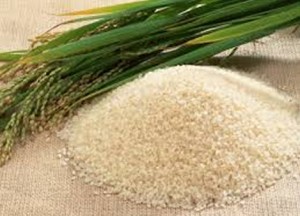Rice seed scaling project launched in Ghana
 A project to overhaul the rice seed system and improve farmers’ access to all rice seeds in the Northern and Upper East Regions has been launched.
A project to overhaul the rice seed system and improve farmers’ access to all rice seeds in the Northern and Upper East Regions has been launched.
The three-year initiative dubbed: ‘Rice Seed Scaling Project,’ is being implemented by the Africa Rice Centre, in collaboration with the Agricultural Technology Transfer (ATT) Project, Savanna Agricultural Research Institute of the Council for Scientific and Industrial Research (CSIR-SARI), Alliance for a Green Revolution in Africa (AGRA), and some selected private seed companies and extension agencies.
The United States Agency for International Development (USAID) is funding the project with one million dollars, while Africa Rice Centre is providing the technical support to ensure a successful implementation.
The objective of the project is to amongst others, improve seed planning and connect actors along the rice seed value chain, as well as strengthen capacity of rice seed value chain actors to stimulate the development of a sustainable rice seed system in northern Ghana.
The move is to ensure that 1.5 tons of quality breeder seeds are produced yearly by SARI and purchased by private sector companies, 50 to 60 tonnes of quality foundation seeds are produced yearly by four private seed companies, and purchased by certified seed producers, and 2,000 to 2,500 tonnes of certified and quality declared seeds are produced yearly from 2016 by both certified seed producers and community-based seed producers and purchased by paddy rice producers.
Dr Stephen Nutsugah, Director of CSIR – SARI, said at the launch of the project at Nyankpala near Tamale on Tuesday that the project had come at an opportune time to enhance food security, reduce importation of rice and increase incomes of smallholder rice producers, traders and processors through increased production of good quality rice.
Despite various initiatives by government to increase rice production, the country still has a demand-supply gap that is being filled through importation of more than 350,000 metric tonnes annually, costing more than 600 million dollars.
The country’s total rice demand will reach some 820,000 metric tonnes yearly, in a few years’ time for which a boost in domestic production becomes very paramount in meeting such rising demand.
Dr Nutsugah, therefore, said the project would collaborate with other rice project initiatives, by delivering interventions that sought to address the challenges facing the country’s rice industry, to ensure the production of increased and good quality rice to meet the rising demand.
Dr Olupomi Ajayi, Consultant, Rice Sector Development and Risk Management Officer at Africa Rice Centre, said: “This project is unique because at the end of the project, we must leave behind a rice seed system that functions well and is sustainable and its impact should be felt by everyone involved in the seed system.”
Dr Ajayi expressed gratitude to USAID for providing the financial support for the project, which would address the constraints and opportunities identified in the country’s national seed policy.
Mr Brian Conklin, Deputy Office Director / Agriculture Team Leader, Office of Economic Growth of USAID, called for effective collaboration with other rice sector projects, to ensure the transformation of the country’s rice industry.
Source: GNA
